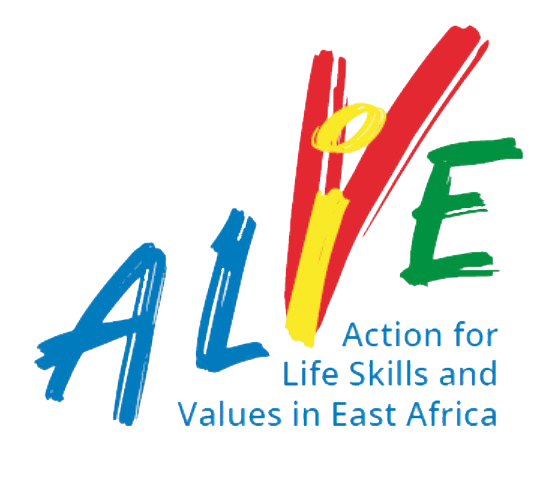In April 2024, the Action for Life Skills and Values in East Africa (ALiVE) embarked on a journey to assess life skills and values in Taita Taveta, Nyeri and Kisumu counties, in Kenya. The assessment covered 1,265 adolescents aged between 13-17 years old, across the three counties. ALiVE aimed to assess 3 life skills: collaboration, problem solving and self-awareness alongside the value of respect. The assignment began with a 3-day training of assessors who were selected from a crop of trainee teachers. This choice of assessors was strategic because the ALiVE initiative aims to expose teachers to identify life skills and values, integrate them in the education curriculum, and ultimately be able to assess them at the classroom level. Watch more on the assessment here. At the end of the weeklong exercise, some of the assessors wrote the following blogs as a highlight of their experiences during the assessment.
The culmination of the ALiVE household assessment on life skills and values marks not just the end of an evaluation but the beginning of a transformative journey. The values and life skills learned mark the strength and wisdom behind the program. Focusing on self-awareness, problem solving and collaboration as yardsticks, as an assessor and teacher in training, my immersion in this assessment has been a profound exploration of empowerment and growth regarding life skills and values among adolescents in East Africa. The program was full of immense learning opportunities that included a three-day training programme and ground research.
Pivotal moments of the assessment included: witnessing first-hand the resilience and aspirations of adolescents aged 13 between and 17 years, engaging learners in discussions about values and life skills revealed an array of experiences, challenges and dreams, as well as observing this youthful world of exuberance. These experiences benefitted the assessment, and opened windows into the hearts and minds of our future leaders.
Navigating diverse household dynamics underscored the interconnectedness of values and life skills with familial environments. Each household visited in Kisumu county presented a unique narrative, reflecting the rich tapestry of East African culture. From bustling urban settings to serene rural landscapes, the common thread was the unwavering dedication of parents and guardians in instilling essential virtues in their children.
Additionally, communication proved pivotal in the assessment process. Effective dialogue, laced with empathy and understanding, fostered trust and openness among adolescents and their families. This experience reaffirmed the impact of communication in nurturing personal development and fostering meaningful connections.
Much can be said of the Zizi Afrique Foundation-led assessment. However, it did not pass without challenges. The challenges included logistical hurdles given the terrain of the villages visited. We also met occasional resistance at the household level. But with resilience and adaptability, we pulled through most of the challenges and embraced them as catalysts for co-existence and growth, strengthening our resolve to advocate for comprehensive life skills education for all adolescents. Reflecting on the ALiVE household assessment, I am reminded of its significance beyond data collection.
It is a call to action—a call to empower, educate, and uplift the youth of East Africa, for life. It is a testament to the collective effort of educators, parents, and stakeholders in shaping a generation equipped with the tools to thrive in an ever-evolving world. I believe the ALiVE program will have positive and long-long effects on all those reached. In conclusion, I extend my gratitude to Zizi Afrique Foundation for orchestrating this impactful assessment and commend my fellow assessors for their dedication. Let us carry forward the lessons learned, championing the cause of holistic education and empowerment for our youths.
Brian Okoth
Despite these challenges, the experiences gained during the assessment were invaluable. Engaging directly with parents and the adolescents provided insights into the unique dynamics and needs within each household. Where parents or care givers embraced the assessment, meaningful conversations ensued, building a sense of collaboration and shared responsibility for adolescents’ growth and development. They in turn expressed appreciation for the opportunity to reflect on and discuss essential life skills and values with their children.
Conversely, in households where ALiVE was met with resistance, the assessment process became an opportunity for dialogue and awareness creation. Concerns were addressed through trust building and rapport with doubtful household heads, emphasizing the potential benefits of equipping the adolescents with critical life skills for present and future success. Throughout the assessment, self-awareness emerged as a recurring theme for parents and adolescents alike. Discussions around respect, problem solving, and collaboration often promoted self – reflection encouraging individuals to examine their own behaviours, beliefs and attitudes towards others and towards life encounters.
Overall, the assessment experience reinforced the complexity of promoting life skills and values within diverse communities. It underscored the importance of inclusive and participatory approaches that recognize and respect the cultural context while striving for positive change. Moreover, by engaging with the households and doing dialogue, the assessment process became not only a means of evaluation, but a catalyst for community engagement, empowerment and (hopefully) transformative growth. A special acknowledgement must be made to the team at Zizi Afrique for their invaluable support and guidance throughout the assessment process.
If there is anything directly influential in value development, it most definitely must be the ALiVE program. The program is geared towards personal expression of values and life skills and an appreciation of those around us. Zizi Afrique Foundation team facilitated the household assessment of adolescents aged 13 to 17 years, to evaluate their proficiencies in 3 life skills and one value that is: self-awareness, problem solving, collaboration and respect.
Ann Gitonga
BY STELLA ROSE AKONGO










